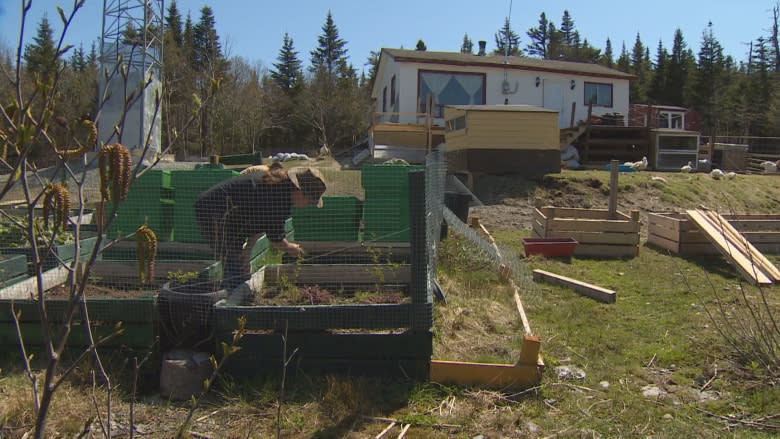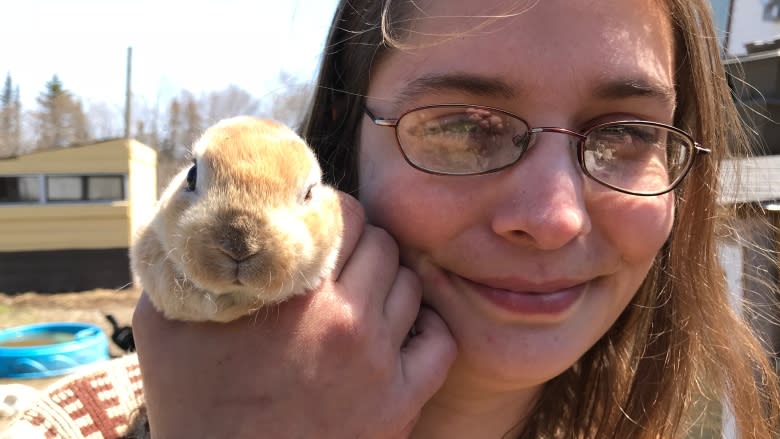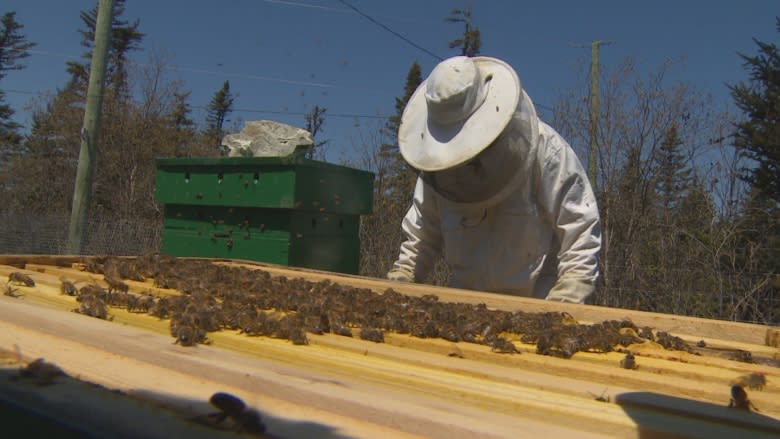Goats, bees and bunnies: Why these homesteaders are committed to DIY food
Lisa McBride kicks back with her goats, using one as a pillow.
"This is where I come to relax," said McBride, outstretched in the sun.
She jokingly calls the goats her best friends, but of course, on the McBride homestead, they also serve a more practical purpose.
The goats provide about three litres of milk a day, and Lisa and her husband Steve turn that into cheese, yogurt and ice cream.
"Well, initially, and it seems like a lifetime ago, we were both living in east Vancouver working 40 hours a week, you know, not knowing anyone in our community," Lisa said.
The McBrides wanted to find a more affordable city and try making their own food. So about 10 years ago, they trekked across the country and settled in St. John's.
A few years after that, they wanted to commit more to the self-sufficient lifestyle, so they moved again, landing just outside Mobile on the southern shore of the Avalon — where land was even cheaper and livestock rules weren't so strict.
When the family made that move, they started a Facebook group where people could ask and answer backyard farming and homesteading questions.
Now the group has close to 11,000 members, and the couple says people in this province are showing a growing interest in their lifestyle.
"I saw a documentary a while ago where a famous chef basically asked a group of school kids to identify foods, and in many cases, a lot of kids couldn't identify an eggplant or even a potato," Steve said.
"And I think part of that is why homesteading is becoming so popular. We recognize that our connection to our food has been cut."
The McBrides harvest most of their own food.
They forage, tap maple trees, and have a garden.
In addition to their goats, they also keep bees, ducks, turkeys and rabbits.
"Here in our province we do import over 90 per cent of the food that comes in," Lisa said.
"And I think it's something like three days before we wouldn't have any food if there was a big ol' national disaster or anything, so we really wanted to look at we could do, personally."
They name their animals and then, eventually, eat them.
"That's definitely the toughest part," Steve said.
"That is the part that's really challenged our convictions to DIY food … but at the end of the day, what made it possible was simply considering the lives that they would live here on the homestead, where the animals would be free to live their lives as naturally as they could. To be happy, to be fed, to bask in the sunshine."
Steve said raising their own animals made them less wasteful. They eat every part.
Homestead-a-palooza
Because of the growing popularity in homesteading, the McBrides are putting off an event in September.
They're calling it 'homestead-a-palooza' and it'll have 20 workshops under one roof. It will cover things like homemade honey, backyard chickens, fur dying and foraging.
"I think it's going to give everyone a really good opportunity to get used to just the light waters of different subjects," Lisa said.
"See if it's something that they're interested in ... so that they can kind of get the feel for it before maybe jumping in."
Read more stories from CBC Newfoundland and Labrador





